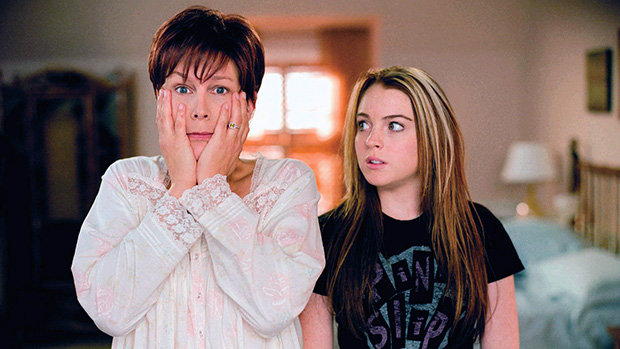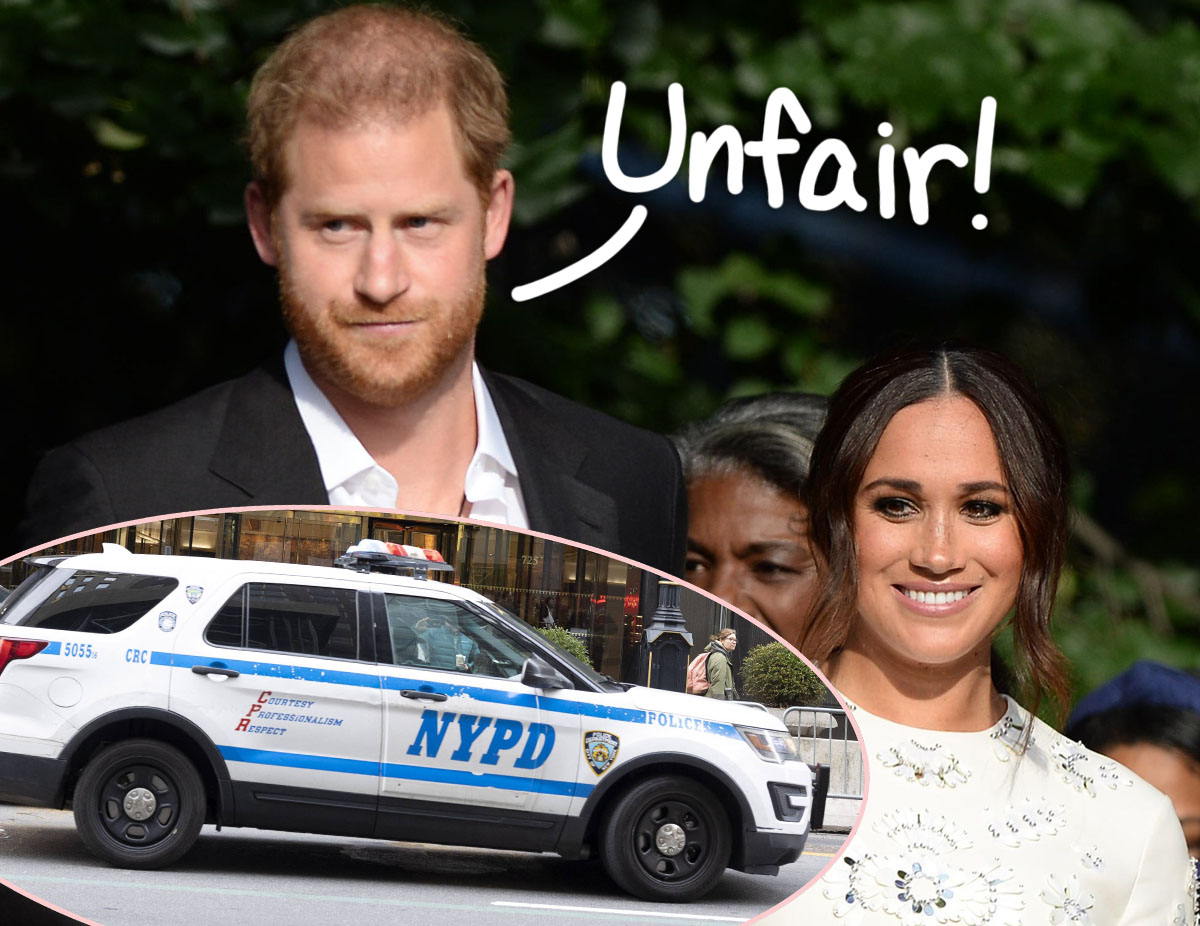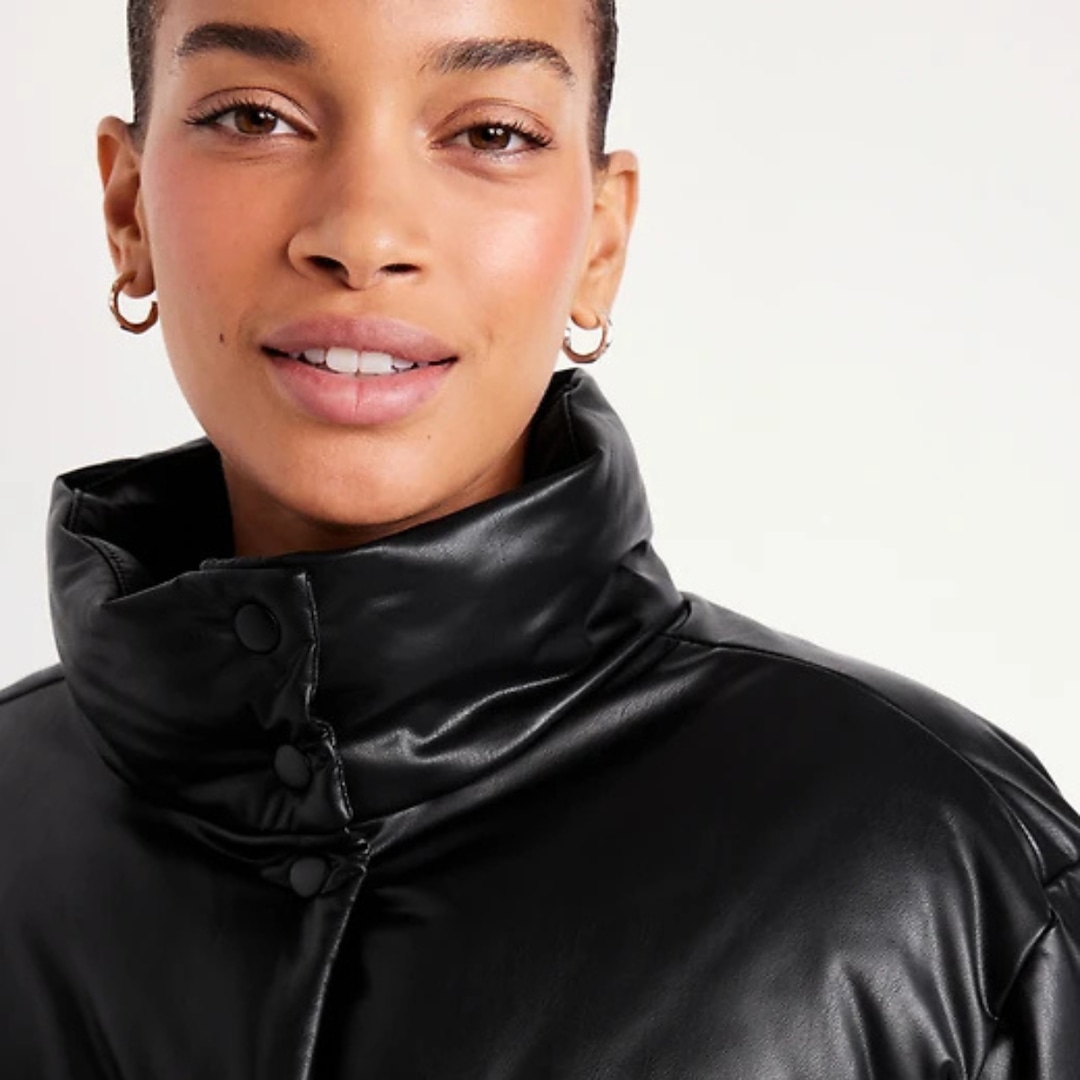They’re a low-commitment — and painless — embellishment.
Not every style vogue of our day starts with the tastemaker triad of Taylor Swift, Beyoncé and Rihanna. Take earcuffs, for example. Yes, the triad has been wearing them a lot lately, but they’re not a new thing. The Celts were wearing them thousands of years ago. Earcuffs were big in ancient Greece. Sailors and pirates wore them, along with hoops and studs, for centuries before they became a hippie — and, of course, gay — thing in the 1960s and ’70s. Runway ears in the ’80s were chockablock with punk-inspired ones. Jean Paul Gaultier and Karl Lagerfeld were reportedly fans. And later, the cuff trend had the ear, so to speak, of Dries Van Noten and Jason Wu.
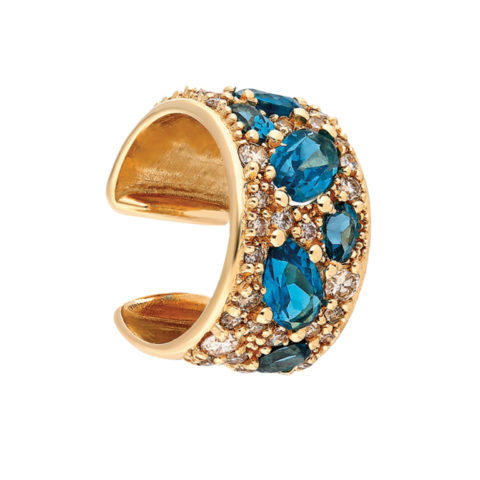
Ear decoration in general dates back even further than earcuffs — probably as far back as 5,000 years. We know this because of Ötzi (a.k.a. the Iceman), whose mummified remains were found in 1991 in the Ötztal Alps, at the border between Austria and Italy. Ötzi lived between 3350 and 3105 BC, and his ears were pierced.
The earliest cultures modified their bodies in different ways, but piercing — specifically ear piercing — is probably the oldest known form of this. Ear ornamentations, mainly hoops and rings made from ores, alloys and precious stones, have been found in ancient burial sites in India, Egypt and Babylonia. Helix earrings, where the upper cartilage of the ear is pierced, have long been popular among goths and punks, but the most gorgeous examples I’ve seen are those of third century BC Greece.
Of course, it’s hard, if not impossible, to determine with any certainty how old certain piercing practices are. Typically, human remains from the ancient world don’t divulge that information. Mummies, however, like Ötzi, are more revealing. Tutankhamen’s earlobes were pierced, and earrings were found in his tomb.
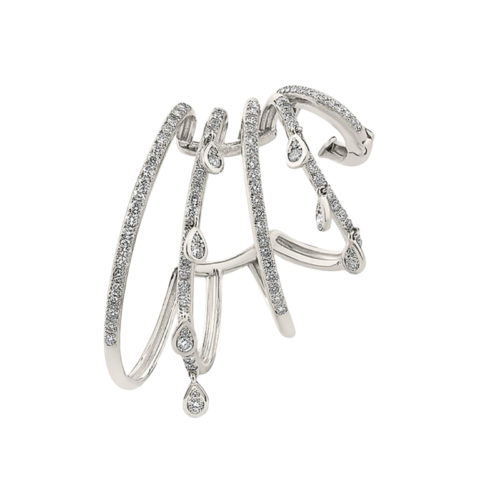
But how old is rook piercing, where the little ridge above the tragus, between the inner and outer conches, is perforated and decorated with a small ring? Most earring historians — yes, that is a thing — say that a piercer named Erik Dakota invented it in the 1990s. Dakota also pioneered industrial piercing. This is where two perforated holes in the upper ear cartilage are connected with a single piece of jewellery. It is popular among celebrities, like Kylie Jenner and Miley Cyrus. And no one has claimed an earlier form.
Daith piercing, where the ring pierces the ear’s central fold of cartilage, is also attributed to Dakota. Here, the bottom part of the ring looks like it’s coming directly out of the ear canal. Some say it has an acupuncture-like effect for relieving migraines, but a paper published in 2017 by the American Migraine Foundation says there is no scientific proof for this. What is known, however, is that it takes six to nine months to heal. For me, this is a deal breaker.
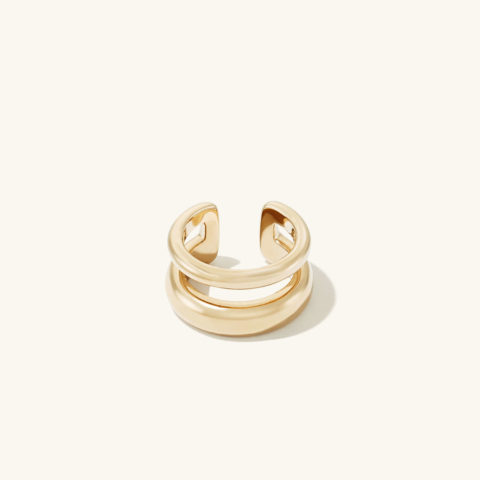
Full disclosure: I have no piercings. Other than two disappointing visits to an acupuncturist five years ago for a stiff neck, I have never voluntarily had any part of my physical person punctured. Let’s just say that in this department, I have commitment issues. When it comes to my body, permanent puncture marks just aren’t my thing. I can regret a pair of shoes or a haircut — shake my head and say “Good Lord, what was I thinking?” But shoes, clothes, those ridiculous trousers, that stupid floozie shirt… I can take them off, resell them, hand them down to my daughters or give them away. They’re not me. (Well, hair is me, yes, but it grows back.)
When I began researching this piece on ear ornamentation, I realized, embarrassingly late in the process, that earcuffs usually don’t involve piercing — that they are as easy to put on and take off as a pair of socks — and I became hooked. A cuff is an earring that doesn’t attach to the earlobe but to the pinna, the visible outer cartilage of the ear. You can slide it on and move it up or down on the outer rim of the ear to the position you like — and then add another (and maybe another!).
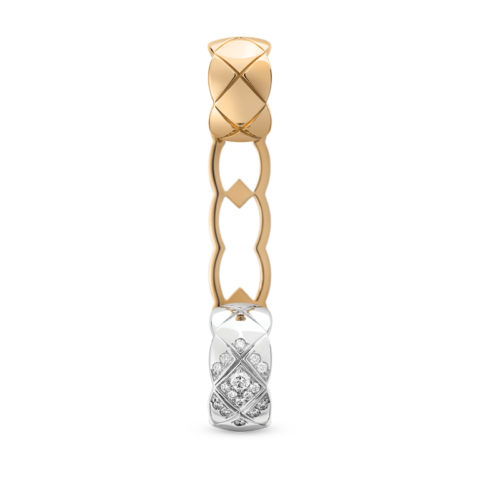
This might explain why earcuffs are so on trend and why all the big jewellery talents are making them. Take Chanel, for example. The house’s stunning Coco Crush versions have become a staple of celebrity dress. Keira Knightley, Jennie Kim and Marion Cotillard all wear them.
Marc Jacobs has some of the most impressive standouts. Especially spectacular is his silver-plated brass Skeletal Ear Cuff for the left ear, which is part of his Heaven collection and was designed in collaboration with Keegan Dakkar.
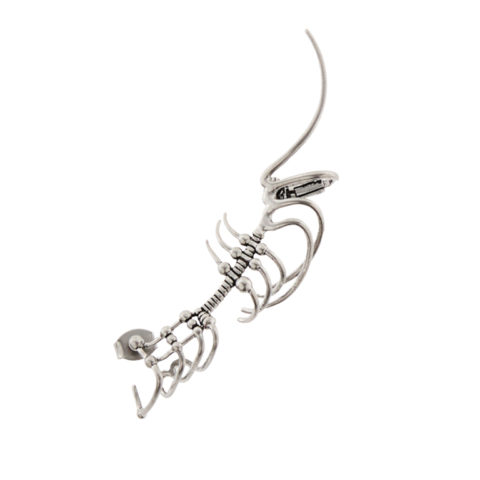
Swarovski has a dozen crystal earcuffs in its current offering. I don’t think I could wear them (they’re all a bit too maximalist for my aesthetic), but I’ve seen them on younger women — and on men — and they look fabulous.
Burberry’s slip-on Lola Ear Cuffs come in a good-value three-in-one set of gold-plated brass hoops including enamel designs.
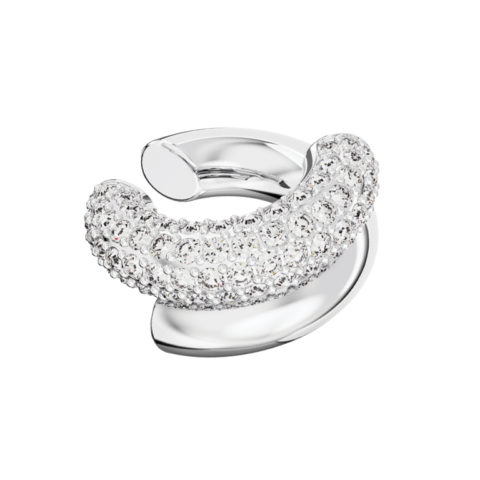
Closer to home is Vancouver’s own Blue Ruby, which has close to 20 stylish earcuffs on its website. And Montreal’s Véronique Roy Jwls has 20 or so very fetching options in her collection: small ones designed for the top of the ear and larger ones meant to sit in the lobe and conch area.
If you’re scrimping, H&M has nice pieces at affordable prices. Etsy, too. But if you’re not worried about the cost, Gwyneth Paltrow fave NP Jewelry has a sumptuous diamond pavé earcuff in 18-karat white gold priced at $6,620 and a bright, bold, chunky 18-karat yellow-gold version that’s a bargain at $1,220.
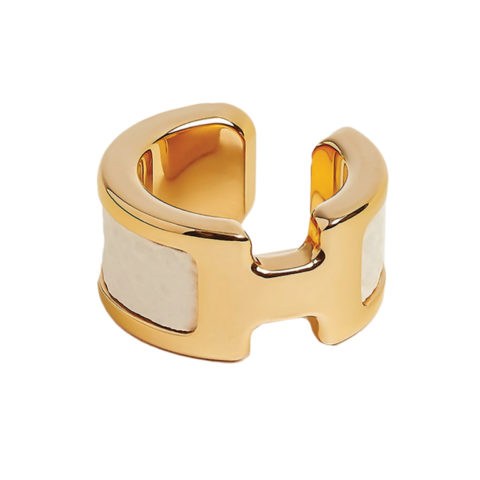
My favourite — the one I’d buy if money were no object — is Hermès’s Olympe Ear Cuff in calfskin with gold-plated hardware. It’s stunning. Until I can afford that one, I’ll probably just keep borrowing my daughters’.
This article first appeared in FASHION’s March 2024 issue. Find out more here.
This article contains affiliate links, so we may earn a small commission when you make a purchase through links on our site at no additional cost to you.

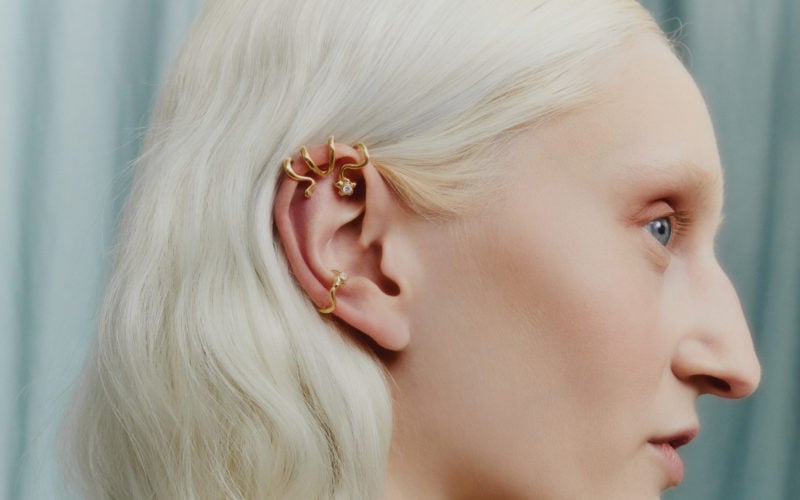
:quality(85):upscale()/2025/01/15/049/n/1922564/a753b85967884eaf8fe5f9.34920179_.jpg)
:quality(85):upscale()/2025/01/15/863/n/49352476/9e69ba8767880fdc9084b2.84057222_.png)
:quality(85):upscale()/2025/01/07/813/n/1922564/b63421d9677d72ddd6eff7.56786871_.png)
:quality(85):upscale()/2024/12/24/622/n/1922564/9eb50f2c676abd9f1647c5.05876809_.jpg)
:quality(85):upscale()/2024/12/12/709/n/1922564/7bb19976675b0904d64976.02429851_.jpg)

